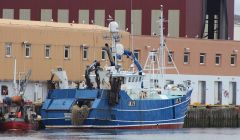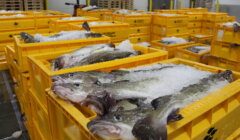Letters / Astounding policies
The UK fishing industry is presently facing increasing pressure to its sustainability due to issues regarding the security of our nations fishing grounds and various government-imposed regulations.
We fisherfolk who depend on the sea for our coastal communities’ sustainability can only hope that the recent changes in our government and the decisions they make will be for the good of us all.
UK Government officials are presently enforcing minimalistic EU set catch quotas on our UK fishing vessels, while fleets of overseas owned fishing vessels appear to catch and land fish from our waters without being checked or restricted by UK officialdom. This issue needs to be addressed.
Overseas owned vessels are presently closing off vast swathes of the seabed around our shores with tangle nets and longlines, thus preventing our own country’s vessels access to our traditional fishing grounds.
Now, our governments have policies in place to prevent our fishing fleets access to even more of our nation’s seabed; they are presently selling off vast swathes of our fishing and important fish spawning grounds for wind farm development.
This I fear, will inevitably cause environmental devastation to those fishing grounds and dependant marine life.
I find these policies astounding! When there is the alternative of thousands of miles of barren UK coastline that could be used for wind farm development, where near continuous winds blow due to the natural phenomena called sea breezes.
Perhaps building those wind farms offshore to appease the shore based environmentalist becomes of more importance, when we consider that the evidence of bird strikes will immediately be swallowed by the sea and washed away; instead of birds being found mangled and decimated around the bases of onshore wind farms.
This dreadful policy needs to be revised and overturned before more of the fishing grounds around our nation’s shores are polluted by unnecessary wind farm development.
The fishing industry is a dangerous enough profession, without our own governments putting even more obstacles in the way.
We on the periphery of the UK are also subjects of our new king and country. Do we not also deserve some consideration for our and our dependent communities’ wellbeing?
William Polson
Whalsay














































































